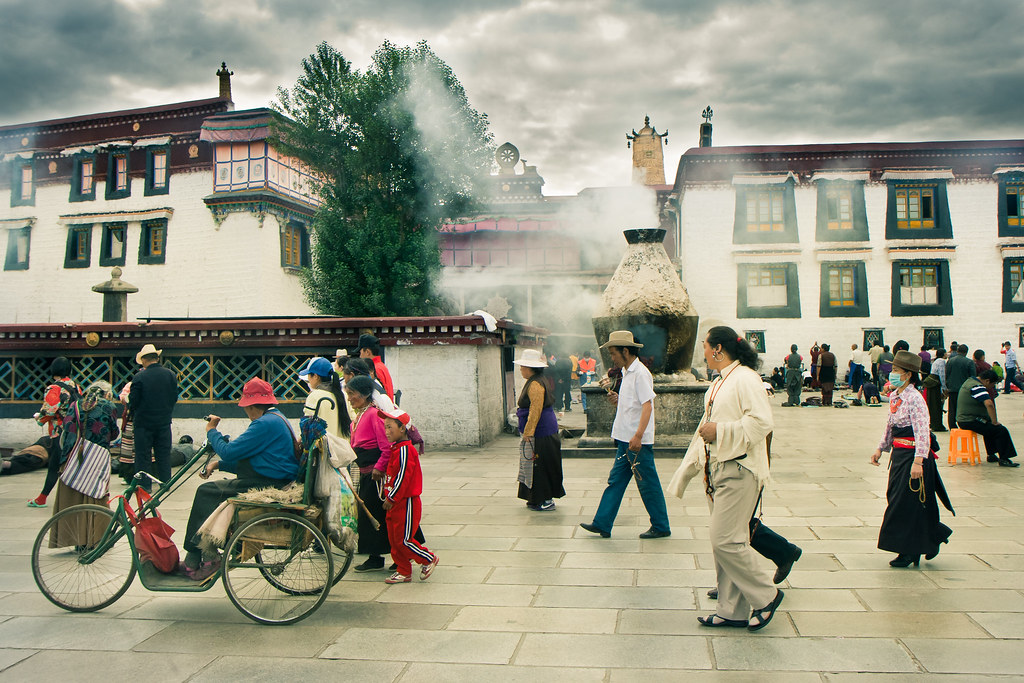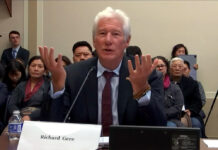
(TibetanReview.net, Oct30’20) – Being religious is “a bad old habit” and Tibetan who benefit from atheist communist party state of China’s anti-poverty relief should not be two-faced by continuing their religious practices, Reuters Oct 30 cited local officials as telling a group of reporters taken on a government-organised tour of Tibet Autonomous Region (TAR), an area where access to foreign journalists is normally barred.
“This house is possible because of good government policies. My heart is wholly with the party, not even one bit with religion,” the report quoted a 54-year-old barley farmer named Dzekyid at Jangdam village as saying, presenting himself as a role model for his neighbours and for the success of China’s efforts to tie economic development to social control in the region.
Dzekyid’s government-built home had a hall filled with Buddhist scriptures and Thangka paintings, and a row of prayer wheels. But that, he has said, was for his religious 76-year-old father, Tenzin, for as a member of China’s ruling Communist Party, Dzekyid was an atheist.
Government officials in both Beijing and Tibet had vetted the reporters from media organisations who were invited to join the trip. And it was a closely supervised tour, with little opportunity to interact with ordinary Tibetans without government officials in attendance, the report said.
“Tibet has some bad old habits, mainly due to the negative influence of religion that emphasises the afterlife and weakens the urge to pursue happiness in the current life,” Che Dhala, chairman of the TAR government was quoted as saying.
The report also cited the head of Caiqutang village, Dekyi Paldron, as saying poor households who receive free new government housing “should not” set up a family room for worshipping Buddha, a common feature in traditional Tibetan houses, because they “shouldn’t be two-faced” after benefiting from the atheist Communist Party.
“If space is taken up by the Buddha room, the boy and girl may have to squeeze into one bedroom — this is not ideal for the healthy development of either child,” another official was quoted as telling the visiting journalists.
The report said recipients of China’s poverty relief had been told to curb their spending on religion and to instead invest in increasing their earning power and in their children.
The report noted that at a vocational school in Nyingchi, a signboard stated that the school used ideological and political education to fight against “separatism”, denounce the Dalai Lama and to prevent religion from making people “passive”.
China sees its anti-religious policy as succeeding to an extent. “Ten years ago, villagers competed among themselves to see who donates more to temples. Now they compete to see whose son or daughter has a stable government job, or who owns a car,” Karma Tenpa, deputy propaganda minister for the TAR, was quoted as saying.
The report said pictures of the Dalai Lama, once commonly displayed in Tibetan homes, had been banned while framed posters of President Xi Jinping were visible inside all the homes the journalists were shown.
Propaganda slogans urging allegiance to China and the Communist Party were stated to be conspicuous along roadsides and billboards in the TAR.





